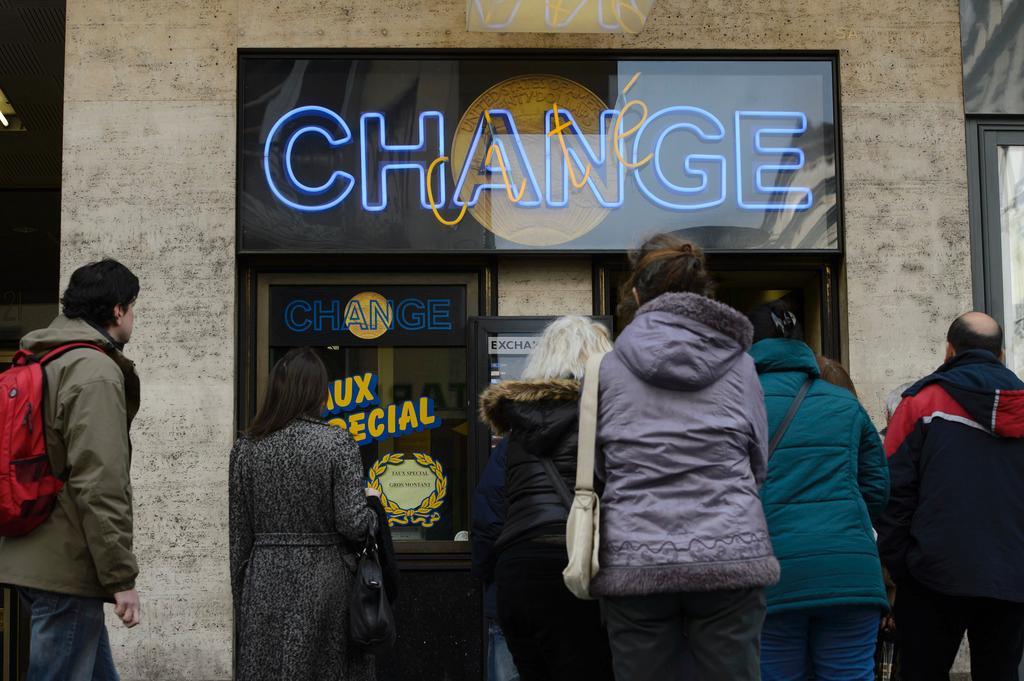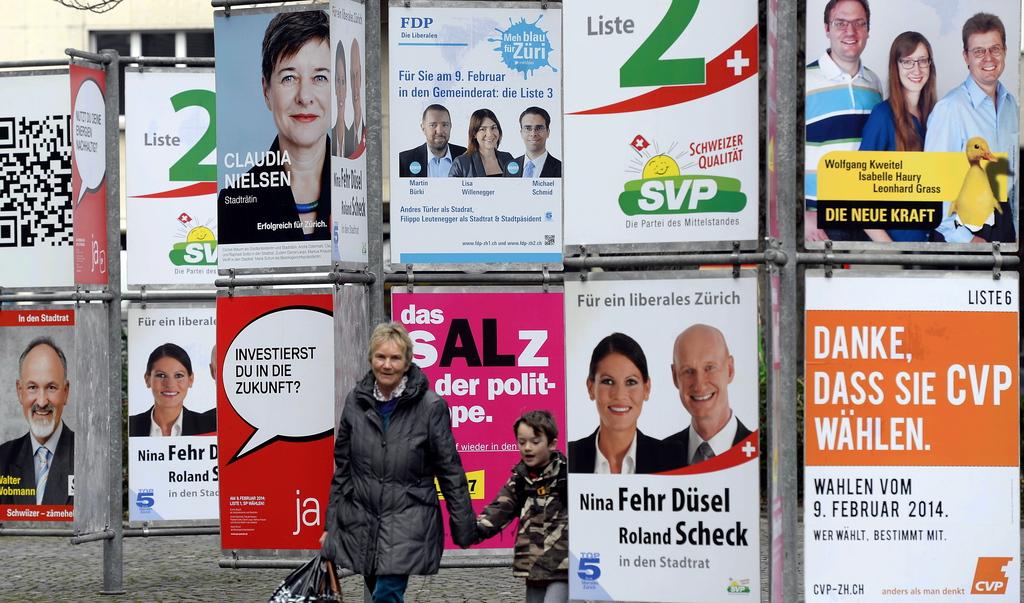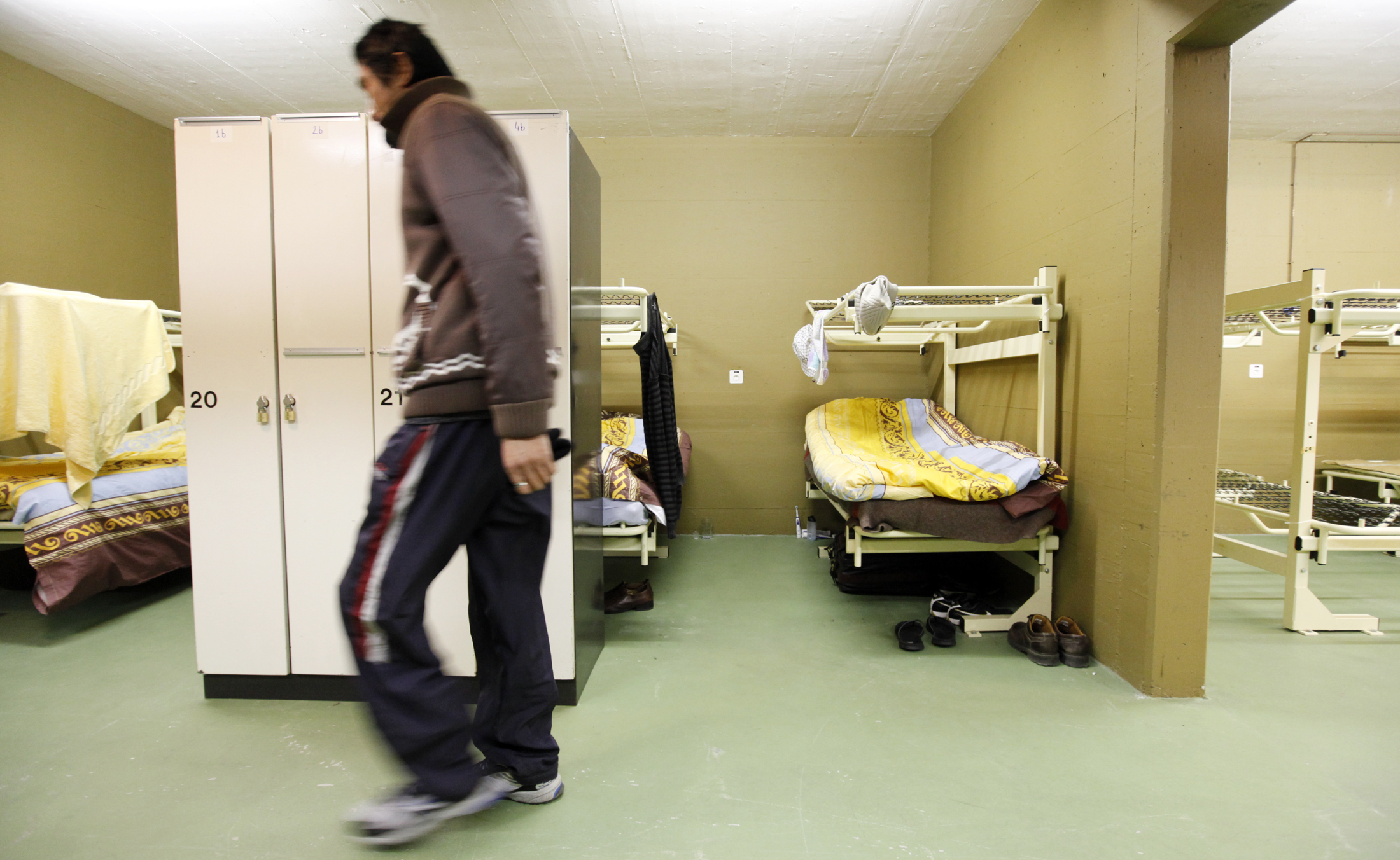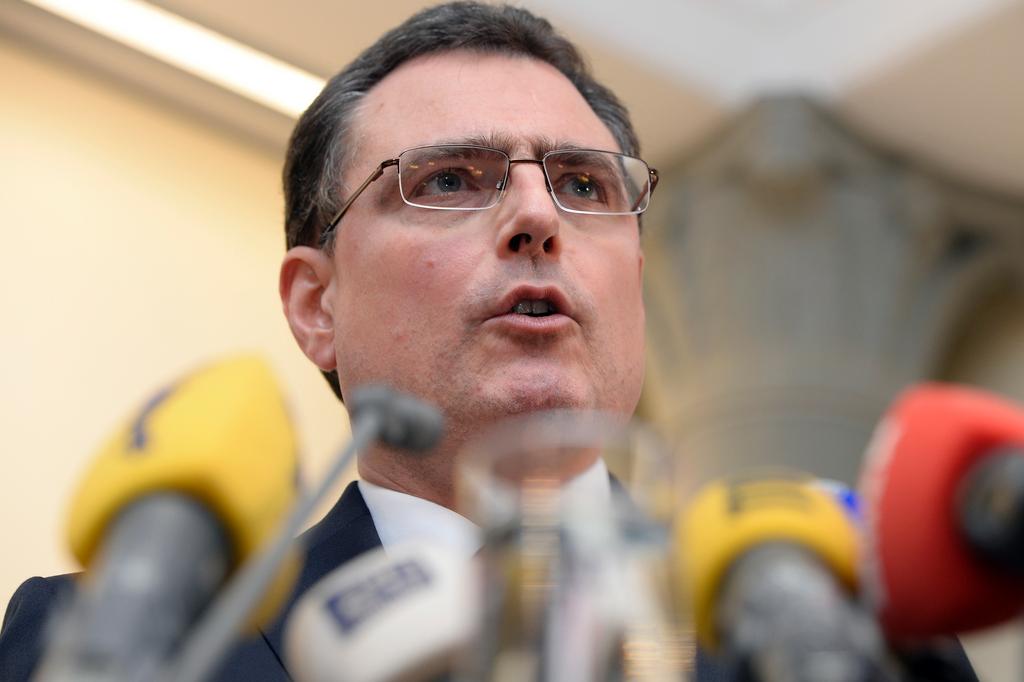Poll finds Swiss wary of political change

Fear for the economy could see Swiss citizens sticking to the political status quo in parliamentary elections in October, a survey shows.
Key events in Swiss politics in the past six months have had a distinct impact on potential voters.
“There is concern a that things could become worse. Therefore there is a trend towards stability,” says political scientist Claude Longchamp, head of the leading GfS Bern research and polling institute.
As well as the Swiss National Bank decision in January, a small centrist party suffered a disastrous defeat in a nationwide vote on environmental tax reform and merger talks failed between two other parties.
The share of support for the seven main political parties is virtually unchanged at the moment compared with a poll carried out last October, according to the survey published on Tuesday.
The conservative right Swiss People’s Party comes top with just over 26%, more than six percentage points ahead of the leftwing Social Democrats. The losers are the Green Party and the small centre-right Conservative Democrats.
The survey was carried out among more than 2,000 citizens across the country in mid-March.
Immigration and EU
Longchamp says the most controversial issues are migration and the future of Swiss relations with the European Union following last year’s decision to re-impose immigration caps.
The decision by the country’s central bank to lift the exchange rate – prompting a surge in the value of the franc at the expense of the export industry and tourism – also left an indelible mark. While a clear majority of respondents agree with the National Bank, the move appears to have played into the favour of parties to the right.
The left for its part is perceived as competent on issues of social and tax justice, the environment and migration.
Issues not personalities
But none of the main parties has succeeded in setting the political agenda at the start of the election campaign.
“The situation in 2015 appears to have become slightly more confusing,” the GfS Bern institute says in its report. “What counts for voters are how a party positions itself on issues such as economy, immigration, finances and Europe.”
“Migration has definitely become a topic for the political left,” adds GfS Bern political scientist Martina Imfeld.
At the same time, the People’s Party is still considered a key player to find a solution, but its credibility has suffered considerably over the past 18 months.
The latest Election Barometer, carried out on behalf of the Swiss Broadcasting Corporation, also highlights a new-found confidence of the centre-right Radical Party which attracts potential voters of the centrist Liberal Greens.
Poor marks are given to the Conservative Democrats, which split off from the People’s Party in 2008. They struggle to attract voters or appear to be losing public support.
Campaign underway
Unlike in regional and local elections, personalities play a minor role in nationwide Swiss elections, according to Longchamp.
“Party presidents are less important than the media would like to make us believe,” he says. He warns against reading too much into the result from the latest cantonal elections. Both the Radicals and the People’s Party did consistently better, while the Conservative Democrats saw their share of the vote slump.
The campaign for the October 18 is now underway, according to Longchamp. It is likely to shift into top gear in August, following a final series of nationwide votes in June and the traditional summer lull.
This is also when speculation will be growing over the political make-up of the seven-member, multi-party cabinet. Parliament is to elect the government in December.
Political interests
Longchamp says interest in politics is already comparatively high seven month ahead of election day. The survey found that 48% of respondents in the survey will cast their vote.
“We live in a very politicised era,” he says, comparing it to the early 1990s when the country was discussing Switzerland joining the European Economic Area Treaty, a half-way house to European Union membership.
The average turnout in nationwide ballots last year was 52%, one of the highest rates in 20 years.
It is the first in a series of four surveys this year ahead of the October 18 parliamentary elections.
The leading GfS Bern research and polling institute interviewed 2,017 citizens across the country between March 11 – 19.
Swiss citizens living abroad were not included in the poll.
The margin of error is 2.2%.
The survey was commissioned by the Swiss Broadcasting Corporation, swissinfo’s parent company.

In compliance with the JTI standards
More: SWI swissinfo.ch certified by the Journalism Trust Initiative














You can find an overview of ongoing debates with our journalists here . Please join us!
If you want to start a conversation about a topic raised in this article or want to report factual errors, email us at english@swissinfo.ch.